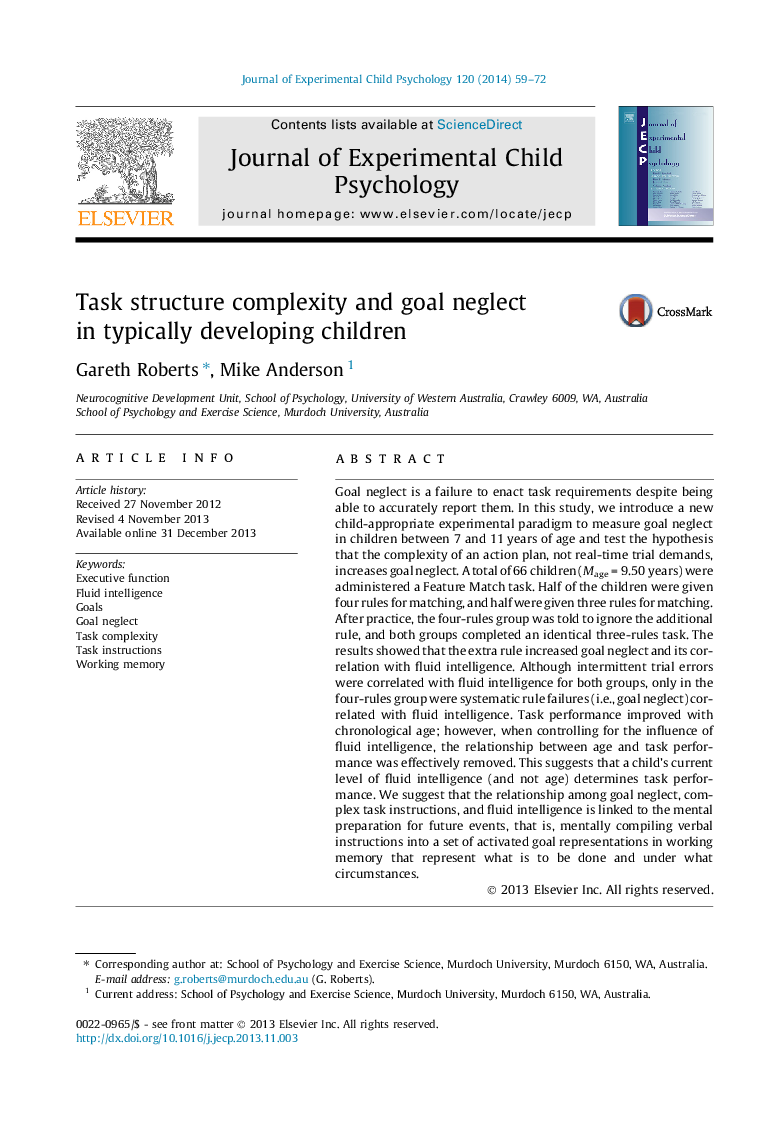| کد مقاله | کد نشریه | سال انتشار | مقاله انگلیسی | نسخه تمام متن |
|---|---|---|---|---|
| 918046 | 1473492 | 2014 | 14 صفحه PDF | دانلود رایگان |
• Introduction of a new goal neglect paradigm for use with children aged 7 to 11.
• Goal neglect is increased in contexts taxing the ability to plan for future action.
• Complex task instructions lead to poorer task performance.
• Fluid intelligence was a stronger predictor of task performance than age.
Goal neglect is a failure to enact task requirements despite being able to accurately report them. In this study, we introduce a new child-appropriate experimental paradigm to measure goal neglect in children between 7 and 11 years of age and test the hypothesis that the complexity of an action plan, not real-time trial demands, increases goal neglect. A total of 66 children (Mage = 9.50 years) were administered a Feature Match task. Half of the children were given four rules for matching, and half were given three rules for matching. After practice, the four-rules group was told to ignore the additional rule, and both groups completed an identical three-rules task. The results showed that the extra rule increased goal neglect and its correlation with fluid intelligence. Although intermittent trial errors were correlated with fluid intelligence for both groups, only in the four-rules group were systematic rule failures (i.e., goal neglect) correlated with fluid intelligence. Task performance improved with chronological age; however, when controlling for the influence of fluid intelligence, the relationship between age and task performance was effectively removed. This suggests that a child’s current level of fluid intelligence (and not age) determines task performance. We suggest that the relationship among goal neglect, complex task instructions, and fluid intelligence is linked to the mental preparation for future events, that is, mentally compiling verbal instructions into a set of activated goal representations in working memory that represent what is to be done and under what circumstances.
Journal: Journal of Experimental Child Psychology - Volume 120, April 2014, Pages 59–72
